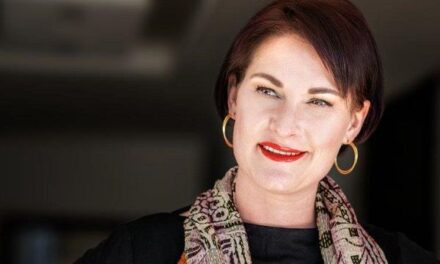
NO! Which part of ‘No’ did you not understand?

“No” is said to be the shortest sentence in the English language wherever it is spoken across the world.
In grammar, the simplest sentence is the most condensed unit to convey the exact understanding of what the speaker or writer wishes to express and make known, e.g. “the boy kicks the ball”. One immediately grasps the intention of the subject, “the boy”, to perform the action of the verb, “kicks”, and the object, “the ball”, which justifies the complete activity.
A typical sentence has a subject and a predicate; the subject or noun indicates the agent who perform; and the predicate which includes the verb and object, is the action, the motive or explanation of what is to be performed.
The shortest sentence “No” equally represents all the necessary grammatical elements of a sentence to convey a complete thought, meaning, statement, command or question. It bears the exact sense of what is to be perceived and expected.
However, we immediately feel a negative attitude in the sentence and the urge to follow it up with an explanation as to the intention of the word. This notion of guilt, coupled with odd or rude unfriendliness and unworthiness, became an unintentional trait of trying to please and satisfy our cultural social behaviour, which almost always expects agreement.
Being agreeable is most certainly the criterion of our positive upbringing to which we are accustomed. “No” is probably one of the first words which a baby learns and understands, a word to which all babies respond to, even in the new age where educators and psychologists generally advise that only controlled behaviour should be used in parenting.
Another aspect to the word “No”, is the manner, tone, timbre, inflection, context and the implied intention of the voice of the speaker which would carry the precise meaning of the message. It is, therefore, necessary to differentiate between when one is to say “No” and when to say “Yes”. This is specifically a cultural difference, because in some cultures saying “No” or “I can’t” is considered very rude and such speakers will automatically respond by saying “Yes” to any question, command or statement, meaning “Yes I understand your gist”.
Although “No” is considered to be the shortest sentence in the English language, there are candidates for this definition. Other short sentences which could claim the same status are; Go, It, I, Sit, Stop, I am, etc. ; all having similar qualities as described above, but, “No” represents such finality that none of the others would dare to contest! This is exactly the spirit which the Women’s Rights Activists have attained for the sentence and which, effectively achieved, is an almost identifiable slogan to actuate and stimulate their mission for women to establish their right to say NO !
And then there was the notorious, Dr No ! which jumps this discourse from a sublime grammatical insight to the not so ridiculous never-never world of fantasy!
A 1962 British spy film, based on the novel by the English author Ian Fleming, launched the James Bond, Agent 007, saga, starring Sean Connery as the first inimitable suave James Bond.
Agent 007, James Bond, is sent by British Intelligence, MI6, to investigate the disappearance of a fellow MI6 operative who was investigating problems which the CIA and NASA had with their space programme. Bond discovers that a cunning megalomaniac and evil Chinese mine operator, Dr. No and his charming and sexy female cohort, are planning his own secret nuclear mission on his private island facility.
So for lighter relief, watch the first Bond film for its cleverness, extraordinary equipment and techniques but take note that there is a reason why the antagonist is called Dr No, and it has nothing to do with Chinese names, it confirms the finality of ‘No’, finish and klaar.
RS










































